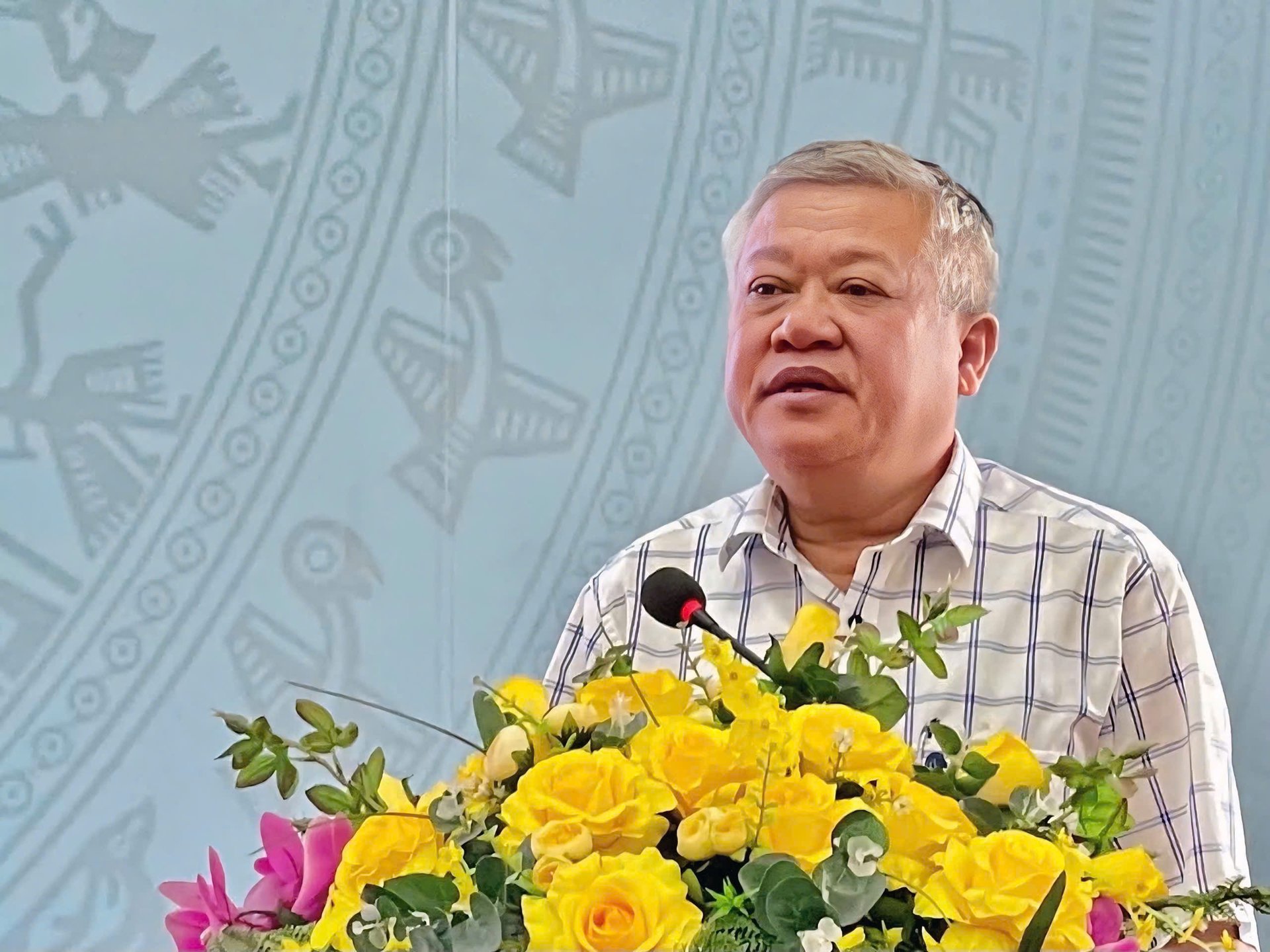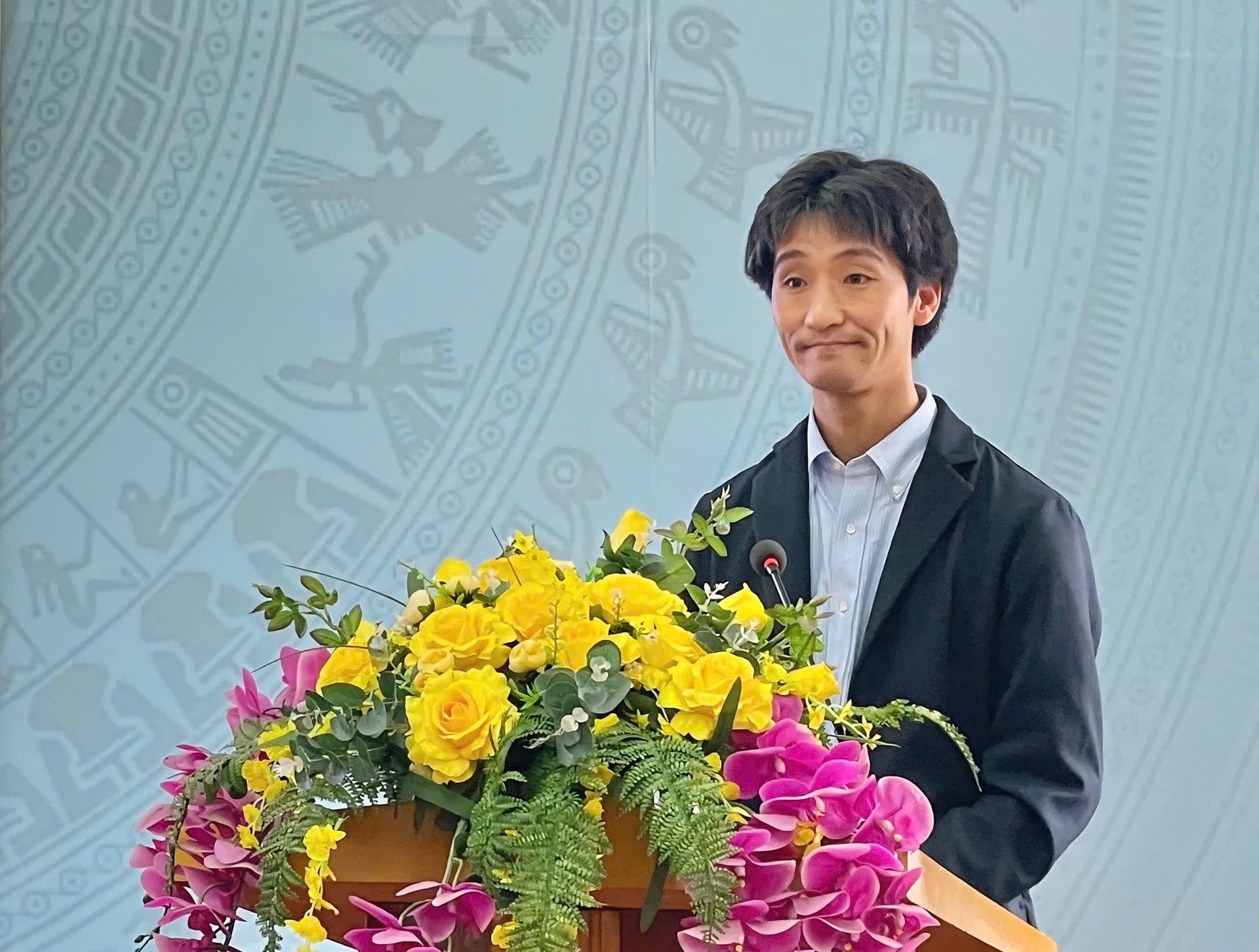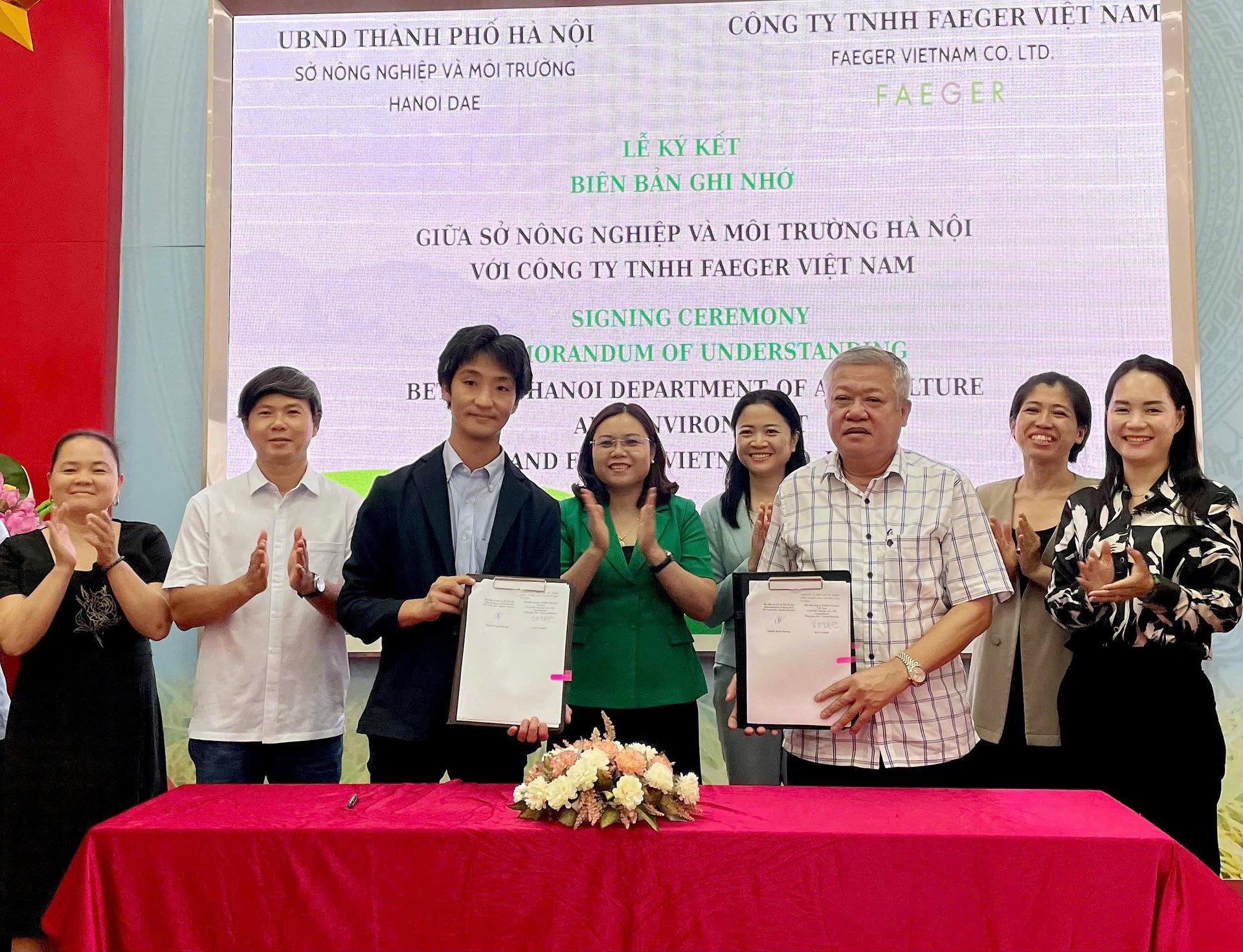December 1, 2025 | 20:30 GMT +7
December 1, 2025 | 20:30 GMT +7
Hotline: 0913.378.918
December 1, 2025 | 20:30 GMT +7
Hotline: 0913.378.918
On the afternoon of July 21, the Hanoi Department of Agriculture and Environment and Faeger Vietnam Co., Ltd. signed a Memorandum of Understanding to cooperate on the project “Decarbonizing rice cultivation through alternate wetting and drying (AWD).”
The project aims to promote low-emission rice production while maintaining yield and quality and generating carbon credits. This is a new approach to increasing farmers' income and promoting sustainable, climate-resilient agriculture.
According to Mr. Nguyen Manh Phuong, Deputy Director of the Hanoi Department of Agriculture and Environment, rice plays a key role in the capital’s food security and sustains the livelihoods of hundreds of thousands of farmers. However, traditional rice farming is a major source of greenhouse gas emissions, particularly methane (CH₄), which is released under continuously flooded field conditions.

Mr. Nguyen Manh Phuong, Deputy Director of the Hanoi Department of Agriculture and Environment, emphasized the importance of reducing greenhouse gas emissions in rice cultivation, aiming toward a green and sustainable agriculture. Photo: Hoai Tho.
“The introduction of the alternate wetting and drying method into rice production is a strategic move to cut methane emissions, while helping Hanoi meet the national emission reduction targets in line with the commitments made by the Vietnamese Government at COP26,” Mr. Phuong shared.
For many years, Hanoi has been promoting the application of the System of Rice Intensification (SRI), combined with mechanization, reduced use of chemical fertilizers, and enhanced water-saving techniques.
The partnership project with Faeger Vietnam Co., Ltd. will add a new technological solution - the AWD technique - to optimize emission reduction without affecting productivity. Notably, the project will generate carbon credits through activities such as measurement, monitoring, and emission assessment, opening up opportunities for carbon credit commercialization and creating a new source of income for farmers.
Faeger Vietnam Co., Ltd. has experience implementing large-scale AWD projects in Japan. In Vietnam, the company conducted technical verification trials in Quoc Oai district (March–June 2025) and is currently continuing implementation in Ung Hoa District.
According to Mr. Seiya Yoshida, the company's general director, the AWD method involves alternating between dry and flooded irrigation. This improves soil conditions, reduces anaerobic decomposition, and thereby lowers methane emissions. This method is highly effective, internationally recognized, and easily scalable under Vietnam’s farming conditions.

Mr. Seiya Yoshida, General Director of Faeger Vietnam Co., Ltd., stated that the alternate wetting and drying technique helps reduce methane emissions and generate carbon credits in rice cultivation. Photo: Hoai Tho.
From 2025 to 2030, the project is expected to be rolled out on a large scale across Hanoi. In the initial phase in 2025, the project will focus on finalizing the data framework and conducting comprehensive assessments in Ung Hoa district. These activities will be the foundation for developing a detailed implementation plan covering 200 hectares in 2026. From 2027 through 2030, the program aims to expand significantly, targeting a total of 50,000 hectares of rice cultivation applying the AWD technique. The ultimate goal is to register for carbon credits and establish connections with domestic and international financial mechanisms to support the initiative.
“We are setting a clear objective to transform the entire rice production chain in Hanoi into a low-emission model by 2030. This transformation is expected to deliver dual benefits, improving environmental outcomes while enhancing the economic livelihoods of local farmers,” emphasized Mr. Yoshida.
According to the terms of cooperation, the Hanoi Department of Agriculture and Environment will serve as the key coordinating agency, responsible for providing technical guidance and overseeing the project’s implementation. Specifically, the Department will be tasked with developing greenhouse gas emission reduction plans, selecting pilot areas for project rollout, assisting with legal and administrative procedures, conducting public awareness campaigns, and monitoring and evaluating the project’s overall effectiveness.
The Hanoi Sub-Department of Crop Production and Plant Protection has been designated to work directly with local authorities to carry out project activities on the ground. On the corporate side, Faeger Vietnam Co., Ltd. will take charge of financing the project, transferring relevant technologies, collecting field data, and implementing benefit-sharing mechanisms by distributing carbon credit revenues to farmers once the project reaches its operational phase.

Representatives of the Hanoi Department of Agriculture and Environment and Faeger Vietnam Co., Ltd. sign a Memorandum of Understanding to cooperate on implementing a project to reduce greenhouse gas emissions in rice cultivation. Photo: Hoai Tho.
In addition, the two parties will collaborate to organize training sessions, provide technical guidance, conduct community outreach activities, and submit regular reports to relevant government authorities. In the coming years, the project is expected to serve as a pilot model for green agricultural transformation, climate adaptation, and integration into the carbon credit market in Vietnam.
Translated by Phuong Linh

(VAN) The Institute of Agricultural Sciences for Southern Vietnam (IAS) marked its 100th anniversary in Ho Chi Minh City, celebrating a century of growth as a leading institute contributing significantly to Viet Nam’s agricultural development.

(VAN) An increasing number of livestock farms are using biogas generators to create a source of renewable electricity, helping to save costs and mitigate environmental pollution.

(VAN) Small changes in rice cultivation, from irrigation methods and straw collection to input management, are paving a new way for Vietnam's agriculture in the journey toward emission reduction.

(VAN) With the project of converting biogas into renewable electricity, Australia is both helping pig farms reduce their energy costs by up to 25% and contributing to environmental protection.
![Hue aims for Net Zero: [1] Initial steps from green transportation](https://t.ex-cdn.com/nongnghiepmoitruong.vn/608w/files/huytd/2025/11/28/0853-anh-6-giao-thong-xanh-hue-094717_940-153724.jpg)
(VAN) For sustainable development, Hue City is implementing many solutions to promote green transportation, which is an important initial step on the journey to building a Net Zero Hue.

(VAN) Nghe An Province, one of the localities with the largest forest area in Vietnam, is set to gain significant benefits from the implementation of forest carbon credit payments.

(VAN) Circular agriculture helps Mekong Delta farmers cut greenhouse gas emissions while boosting incomes through efficient reuse of agricultural by-products.